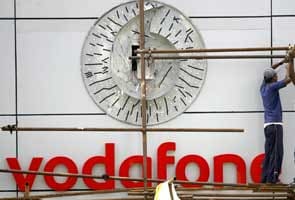
New Delhi:
The Supreme Court tomorrow will hear the government's appeal in the $2.2 billion dollar Vodafone tax case. The government has, with a review petition, asked the court to reconsider its verdict delivered in January which sided with Vodafone and helped improve foreign investor confidence.
But last week, in the union budget, Finance Minister Pranab Mukherjee proposed changes to tax laws retrospectively to 1963. That move, analysts believe, is the government's attempt at getting around the court's decision that the government cannot tax a deal between two foreign entities, even if the transaction includes an Indian asset.
India had sought $2.2 billion from London-listed Vodafone in tax after its purchase of Indian assets from Hong Kong-listed Hutchinson Whampoa Ltd.
Vodafone is the largest overseas corporate investor in India, but its long-running dispute has come to symbolise the perils foreign firms face doing business in the country. The Finance Minister's proposal will allow the country to retrospectively tax cross-border transactions in which the underlying assets are located in India.
Business figures have criticized the amendment, which the head of the Confederation of Indian Industries said would "create an impression of India being an investor unfriendly country especially at a time when we need urgent investment."
"This is most retrograde. Our policymakers should realize we do not live in isolation. We need FDI, foreign technology and capital," said Deepak Parekh, chairman of Housing Development Finance Corporation (HDFC) India's biggest mortgage lender.
Mr Mukherjee has sought to allay industry worries by asserting that the new amendment would not duplicate tax paid in other jurisdictions, and only seeks to ensure tax is paid on deals involving the transfer of Indian assets.
Vodafone's deal is not unique. Various other acquisitions involving overseas deals that appeared closed after the Supreme Court ruling could be affected by the proposal.
Kraft Foods Inc's 2010 acquisition of Cadbury's Indian business and deals involving Indian assets sold by AT&T Inc and SABMiller Plc's purchase of Fosters would be at risk under the new amendment.
"The proposal raises a question as to whether foreign investments are protected in India," wrote Nitish Desai Associates, a legal and tax advisory firm, in a research report.
Legal and tax experts say that while the amendment will see foreign investors act more cautiously in future deals involving Indian assets, the government's decision to throw past deals back into turmoil will only sour overseas investment appetite.
"The government is saying it is clarifying its position," said Amrish Shah, national leader, transaction tax, Ernst & Young India. "But on past deals, it has muddied the water."
But last week, in the union budget, Finance Minister Pranab Mukherjee proposed changes to tax laws retrospectively to 1963. That move, analysts believe, is the government's attempt at getting around the court's decision that the government cannot tax a deal between two foreign entities, even if the transaction includes an Indian asset.
India had sought $2.2 billion from London-listed Vodafone in tax after its purchase of Indian assets from Hong Kong-listed Hutchinson Whampoa Ltd.
Vodafone is the largest overseas corporate investor in India, but its long-running dispute has come to symbolise the perils foreign firms face doing business in the country. The Finance Minister's proposal will allow the country to retrospectively tax cross-border transactions in which the underlying assets are located in India.
Business figures have criticized the amendment, which the head of the Confederation of Indian Industries said would "create an impression of India being an investor unfriendly country especially at a time when we need urgent investment."
"This is most retrograde. Our policymakers should realize we do not live in isolation. We need FDI, foreign technology and capital," said Deepak Parekh, chairman of Housing Development Finance Corporation (HDFC) India's biggest mortgage lender.
Mr Mukherjee has sought to allay industry worries by asserting that the new amendment would not duplicate tax paid in other jurisdictions, and only seeks to ensure tax is paid on deals involving the transfer of Indian assets.
Vodafone's deal is not unique. Various other acquisitions involving overseas deals that appeared closed after the Supreme Court ruling could be affected by the proposal.
Kraft Foods Inc's 2010 acquisition of Cadbury's Indian business and deals involving Indian assets sold by AT&T Inc and SABMiller Plc's purchase of Fosters would be at risk under the new amendment.
"The proposal raises a question as to whether foreign investments are protected in India," wrote Nitish Desai Associates, a legal and tax advisory firm, in a research report.
Legal and tax experts say that while the amendment will see foreign investors act more cautiously in future deals involving Indian assets, the government's decision to throw past deals back into turmoil will only sour overseas investment appetite.
"The government is saying it is clarifying its position," said Amrish Shah, national leader, transaction tax, Ernst & Young India. "But on past deals, it has muddied the water."
Track Latest News Live on NDTV.com and get news updates from India and around the world

